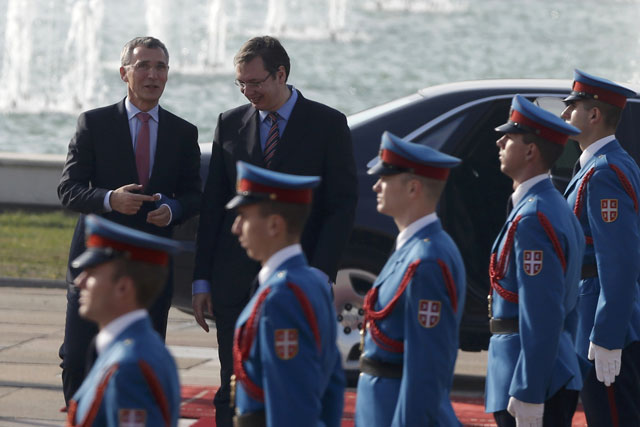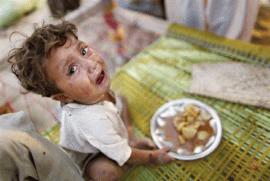
On a visit to the capital, NATO Secretary General Jens Stoltenberg said an 'air safety zone' over a small part of Serbia had been "fully relaxed" as of Friday.
"This means that the restrictions that have been in place since 1999 are now lifted, and this is a very concrete expression of the improved relationship between NATO and Serbia," he said.
Serbia and Kosovo fought a war in 1998 and 1999 which ended after Serbia pulled its forces from the territory following an 11-week NATO bombing campaign.
The air strikes began, without UN Security Council backing, after Serbian strongman Slobodan Milosevic spurned a call to end the crackdown on ethnic Albanian guerrillas fighting for the independence of the southern province.
Paris attacks could change NATO priorities - Russian deputy minister
The air-security buffer zone, established after an accord was signed to end the campaign, covered a 25-kilometre (16-mile) area from the boundary with Kosovo but was partially relaxed in 2001.
The air strikes marked NATO's first-ever major bombing campaign in Europe and remain deeply etched in the memory of Serbians despite efforts by the government to move on.
"Today I am here as a part of a fresh new start in relations between NATO and Serbia," said Stoltenberg, adding that he was aware of "sensitivities in Serbia towards the alliance".
"Our air campaign in 1999 was never against the Serbian people, it was about stopping unacceptable actions by the Milosevic regime which were condemned by the international community," he said.
Bosnia: from outbreak of war to Dayton peace accords
The civilian death toll from the bombing has never been officially established and figures vary from 2,500 dead claimed by Serbian officials to 500 in a Human Rights Watch estimate.
"Any loss of innocent lives in 1999 was a tragedy and I deeply regret it," Stoltenberg said. He also announced the start of a new trust fund to help Serbia safely dispose of up to 2,000 tonnes of surplus ammunition.
The NATO chief said Serbia today played an important role in security-building in the Western Balkans, including by hosting thousands of refugees as they pass through the Balkans on their way to northern Europe.
Kosovo declared independence from Serbia in 2008, a move Belgrade does not recognise.







1732946669-0/Untitled-design-(10)1732946669-0-270x192.webp)









COMMENTS (1)
Comments are moderated and generally will be posted if they are on-topic and not abusive.
For more information, please see our Comments FAQ